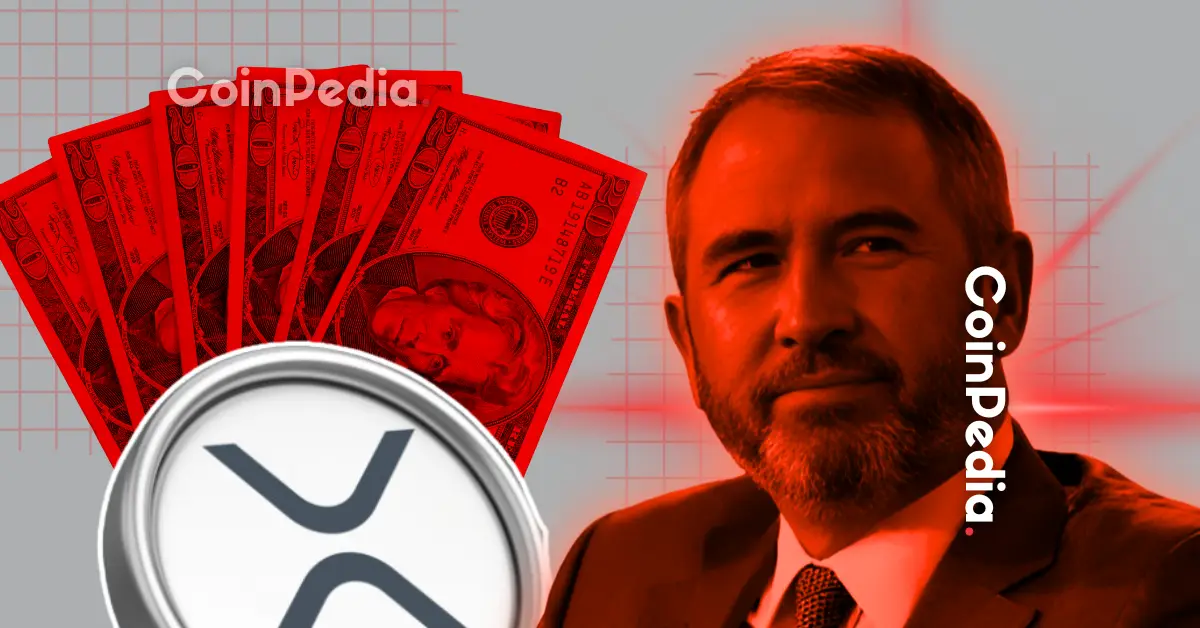
As the cryptocurrency industry reshapes global finance, few leaders have made as profound an impact as Brad Garlinghouse, the CEO of Ripple Labs. With an estimated net worth between $9 to $10 billion, largely driven by his 6.3% equity stake and significant XRP holdings, Garlinghouse has helped Ripple evolve from a blockchain startup into a powerhouse of fintech innovation.
He became a defining figure in crypto regulation, especially through Ripple’s high-stakes legal battle with the U.S. SEC, while also promoting Ripple’s vision for an “internet of value.”
Born in Topeka, Kansas in 1971, Garlinghouse’s early love for computing led him to pursue economics in college, followed by an MBA from Harvard Business School in 1997. In a 2016 interview, he recalled how his desire to “change the world” took him to Silicon Valley during the early internet boom.
He held executive roles at Dialpad, AOL, and Yahoo!, where his 2006 memo—dubbed the “Peanut Butter Manifesto”—criticized Yahoo!’s scattered priorities. The bold critique cemented his reputation as a strategic leader unafraid to challenge the status quo.
Garlinghouse joined Ripple Labs in 2015 and became CEO a year later. Under his leadership, Ripple pushed for global adoption of XRP as a bridge asset for fast, low-cost cross-border payments.
He helped strike major partnerships with financial giants like Santander and SBI Holdings, positioning Ripple as a core player in next-gen financial infrastructure.
In a recent CNBC interview, Garlinghouse emphasized the goal:
“We harness the advantages of crypto, such as quicker and more affordable transactions, and integrate it into traditional finance.”
Ripple’s growing influence in the global remittance and banking sector has also boosted his personal net worth, which, according to Charles Gasparino (Fox Business), crossed $10 billion as of March 2025.
Garlinghouse’s legacy is closely tied to Ripple’s fight with the U.S. Securities and Exchange Commission (SEC). In 2020, the SEC alleged that Ripple, Garlinghouse, and co-founder Chris Larsen raised $1.3 billion through unregistered XRP sales.
Garlinghouse pushed back hard, calling the lawsuit a case of regulatory overreach. He maintained that XRP is a currency, not a security.
The case reached a turning point on May 8, 2025, when Ripple and the executives agreed to a $50 million settlement—a fraction of the original demand. They also jointly requested the court to dissolve the injunction and release funds previously held in escrow. Although formal approval from the court is pending, the move marked a landmark moment for crypto regulation and corporate accountability.
During a U.S. Senate hearing on July 9, 2025, Garlinghouse made a strong case for crypto-friendly legislation. He warned that the lack of clear rules was pushing innovation and jobs overseas and urged lawmakers to emulate regulatory frameworks like those in the U.K. and EU.
He called for practical, consumer-protective laws that foster growth and trust in the crypto ecosystem.
Brad Garlinghouse’s journey—from Kansas to the heart of Silicon Valley to leading Ripple through legal and regulatory minefields—reflects vision, courage, and persistence. With Ripple’s global influence still expanding and regulations slowly evolving, his mission to build an internet of value is far from over.
Whether it’s battling regulators, building fintech rails, or shaping policy, Garlinghouse has become a central figure in blockchain’s journey into the mainstream.
Yes, Brad Garlinghouse has stated that he owned Bitcoin before joining Ripple. While he is deeply associated with XRP as Ripple’s CEO, he has acknowledged having Bitcoin in his personal holdings.
Brad Garlinghouse was born in Topeka, Kansas, in 1971. He holds a Bachelor of Arts in Economics from the University of Kansas and an MBA from Harvard Business School. Before Ripple, he held executive roles at prominent tech companies like Dialpad, AOL, Yahoo!, and Hightail (formerly YouSendIt).
Brad Garlinghouse is the CEO of Ripple Labs, a leading crypto firm, and a prominent voice in the industry. He frequently advises lawmakers on crypto regulation and market structure, often alongside other industry leaders and former regulators. He isn’t known to have a specific individual “crypto advisor” outside of his role as CEO.
The escalating US-Israel-Iran conflict is now spilling into monetary policy expectations. Former Treasury Secretary Janet…
On March 2, U.S. spot Bitcoin ETFs attracted strong investor demand, recording $458 million in…
Iran’s cryptocurrency market saw a sharp shock after recent U.S.-Israeli airstrikes, which targeted Tehran, killing…
March 3, 2026 07:08:27 UTC Crypto Market Today: Bitcoin, Ethereum, and XRP Price Surge Bitcoin…
MANTRA Chain has successfully completed its transition from $OM to $MANTRA with the rollout of…
Open interest in Hyperliquid’s CL USDC oil perpetual contract climbed above $50M in late February…